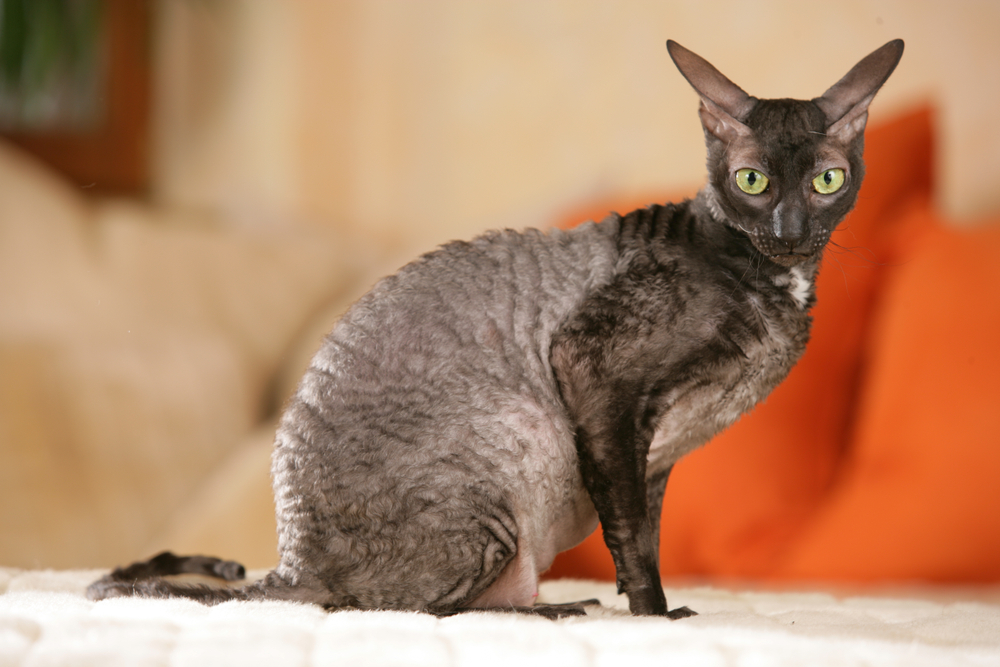Cornish Rex Cat - Everything You Need to Know
-
 Daniel Reed
Daniel Reed - 17 Mar, 2025

The Cornish Rex is a distinctive and elegant cat breed, celebrated for its unique curly coat and playful demeanor. Originating from a spontaneous genetic mutation in the 1950s, this breed has captivated cat enthusiasts worldwide with its slender physique and affectionate nature.
History and Origin
In 1950, in Cornwall, England, a unique curly-coated kitten named Kallibunker was born to a barn cat. Recognizing the potential for a new breed, Kallibunker was bred back to his mother, resulting in more curly-coated offspring. This marked the inception of the Cornish Rex breed, named after its place of origin and the rex rabbit, which shares a similar coat texture. To expand the gene pool, breeders later introduced Siamese, Burmese, and British Shorthair cats into the lineage. The breed gained official recognition from the Cat Fanciers’ Association in 1964.
Characteristics
The Cornish Rex is a small to medium-sized cat with a lean, athletic build. They typically weigh between 6 to 10 pounds and stand about 8 to 12 inches tall. Their most striking feature is their soft, wavy coat, which lacks the typical guard hairs found in other breeds, giving them a unique, velvety feel. They have an egg-shaped head with large, high-set ears, prominent cheekbones, and oval eyes that can come in various colors. Their long legs and arched back have earned them the nickname “greyhound of the cat world.”
Personality
Cornish Rex cats are known for their playful and affectionate nature. They are highly sociable and thrive on human interaction, often following their owners around the house and engaging in interactive play. Their high energy levels and intelligence make them adept at learning tricks and enjoying games like fetch. Despite their active nature, they are also content to curl up in a warm lap, making them excellent companions.
Health Considerations
Generally healthy, the Cornish Rex has a lifespan of 11 to 15 years. However, they can be prone to certain genetic conditions:
- Progressive Retinal Atrophy (PRA): This genetic disorder leads to the deterioration of the retina, potentially causing blindness. While there is no cure, affected cats can adapt well to their surroundings.
- Hypertrophic Cardiomyopathy (HCM): A condition characterized by the thickening of the heart muscle, which can impair cardiac function. Regular veterinary check-ups are essential for early detection and management.
Routine veterinary visits and genetic screenings are recommended to ensure early detection and management of potential health issues.
Grooming and Care
The Cornish Rex’s short, curly coat requires minimal grooming. Occasional gentle brushing helps remove loose hairs and maintain coat health. Due to the lack of guard hairs, their skin can become oily, necessitating periodic baths to keep their skin clean. Additionally, regular ear cleaning is important, as they are prone to wax buildup. Their delicate coat makes them sensitive to temperature extremes, so they should be kept indoors in a comfortable environment.
Nutrition and Diet
A balanced diet rich in high-quality animal proteins is essential for maintaining the Cornish Rex’s muscular physique and overall health. Portion control is important to prevent obesity, especially given their active nature and hearty appetite. Fresh water should always be available to keep them hydrated.
## Exercise and Enrichment Cornish Rex cats are energetic and require ample physical and mental stimulation. Interactive toys, climbing trees, and puzzle feeders can help keep them engaged. They enjoy interactive play sessions with their owners and can even be taught tricks, reflecting their high intelligence and eagerness to interact.
Adaptability
Highly adaptable, the Cornish Rex thrives in various household environments. They get along well with children, other cats, and even dogs, making them suitable for families and multi-pet households. Their sociable nature means they dislike being left alone for extended periods and prefer the company of their human companions.
## Are Cornish Rex Cats Hypoallergenic? While no cat is truly hypoallergenic, the Cornish Rex’s minimal shedding and lack of guard hairs may reduce the spread of allergens compared to other breeds. However, they still produce the Fel d 1 protein, responsible for most cat allergies, so individuals with sensitivities should spend time with the breed before bringing one home.
In summary, the Cornish Rex is a unique and affectionate breed that brings joy and entertainment to any household. Prospective owners should be prepared to provide ample attention, interactive play, and a safe indoor environment to ensure a happy and healthy life for their feline companion.